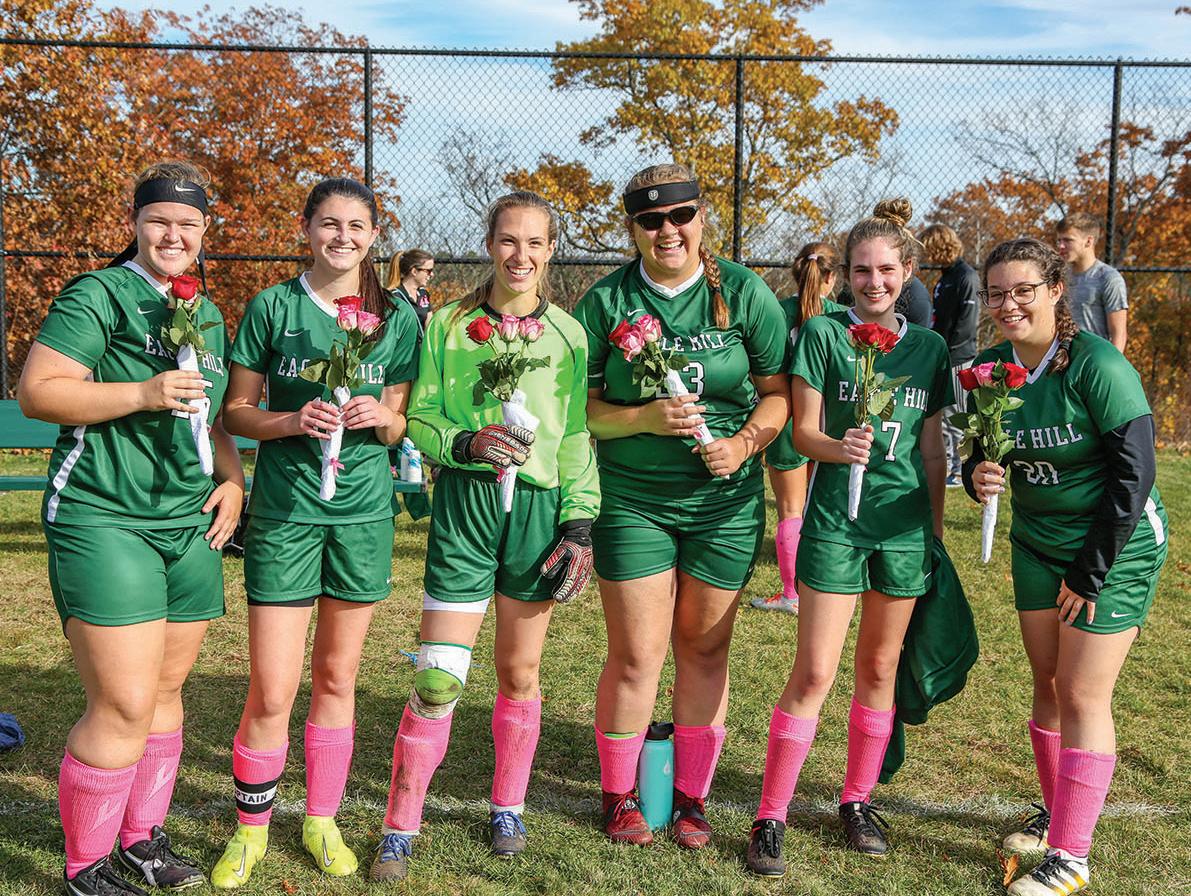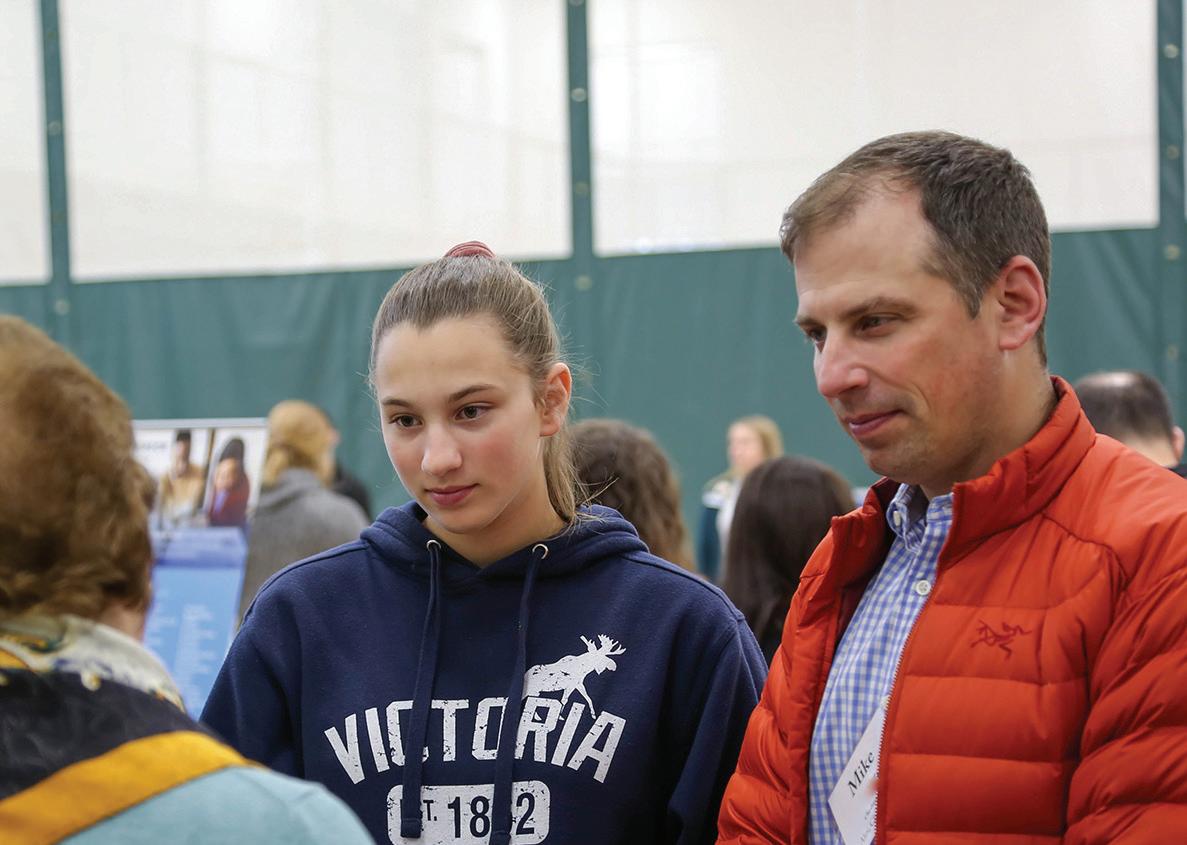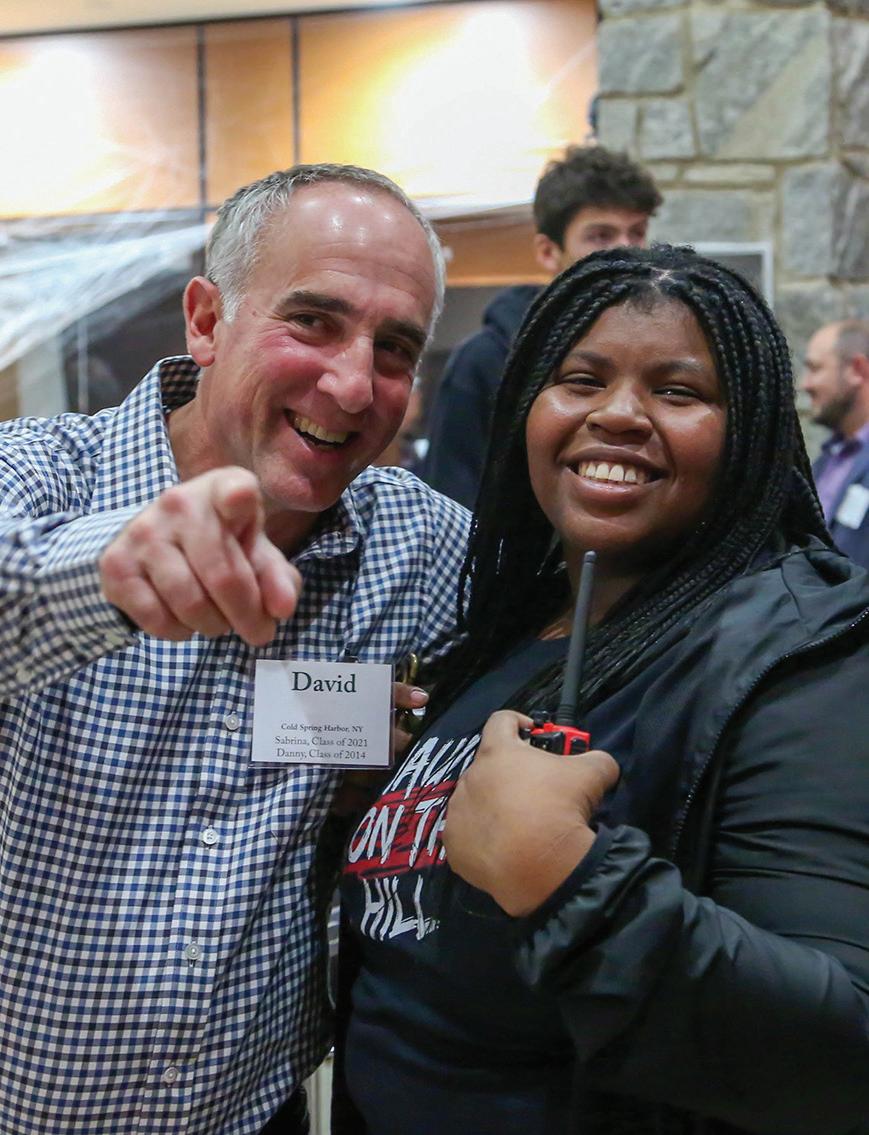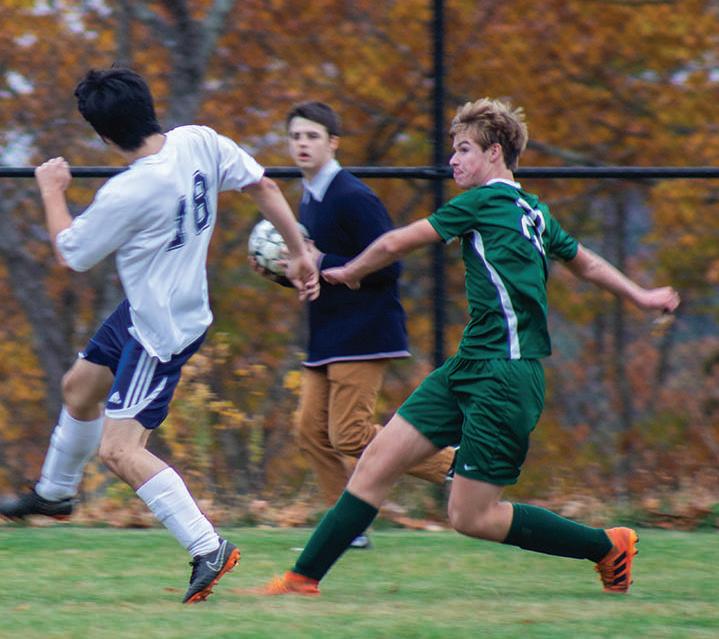
11 minute read
Eagle Hill School - Winter Compendium 2020
Life Coaching in Resident Life By Natalie Mays, Associate Dean of Student Life-Campus Programs
You are probably aware that Eagle Hill has a unique model when it comes to how we think about resident life. While many of our boarding school counterparts use a traditional “triple threat” model—where faculty teach classes, live in the dorms, and coach sports—EHS splits teaching responsibilities and dorm responsibilities. In fact, EHS employs ten full-time resident counselors who are positioned strictly for the purpose of being teachers in informal settings.
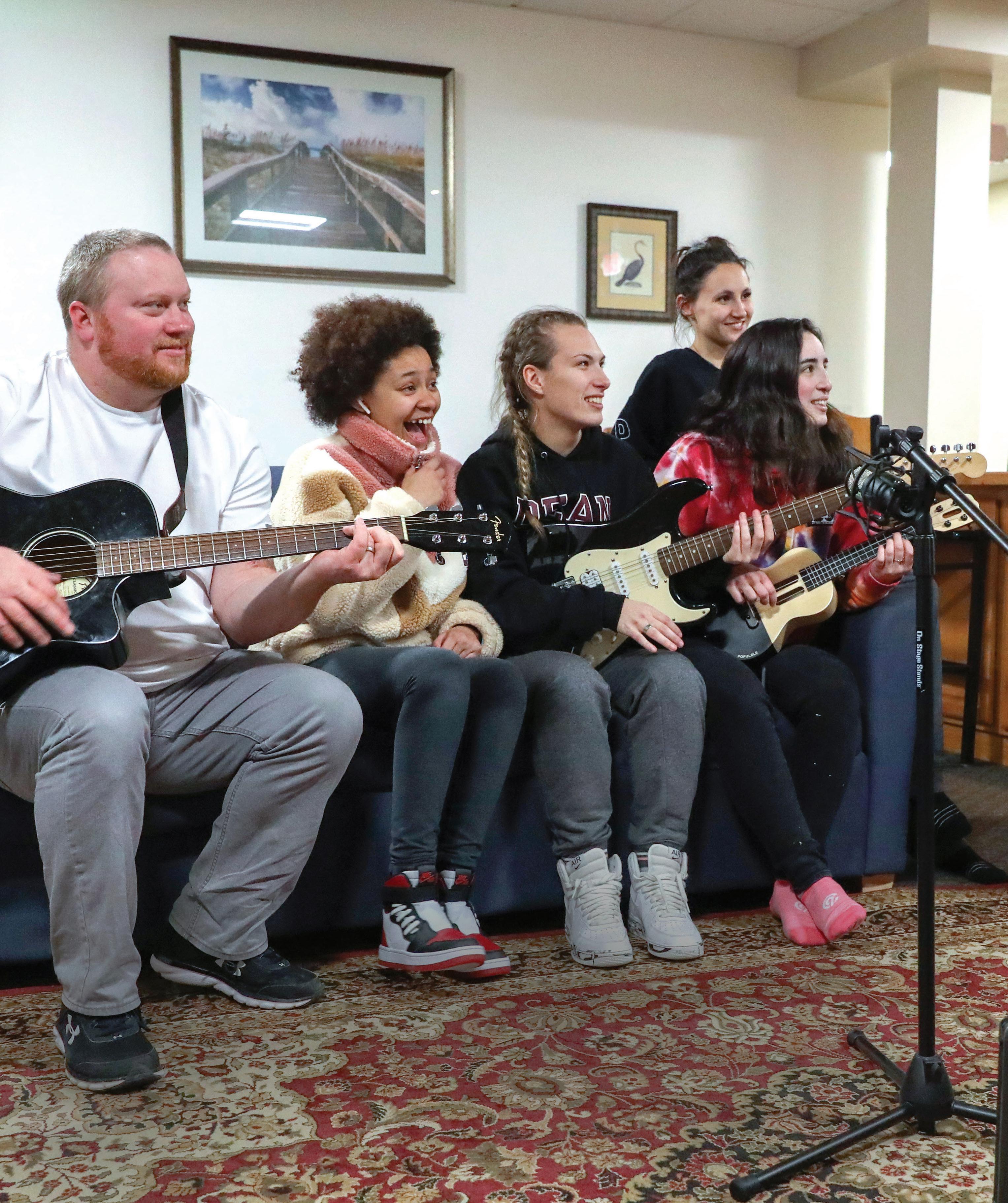
Our resident counselors work with students on everything from time management and organization to completing homework. They plan bonding activities, teach our residential curriculum, and champion community building. They are the last adults our students see in the evening and the first ones in the morning, waking them up with a friendly smile. They ensure students are in dress code, remind them to grab a towel before going to the pool, and act as referee in both roommate debacles and thumb wars. There is really no end to what they do for students.
You may also have heard that in addition to being remarkable in their work with our students, our resident counselors are also certified life coaches. Perhaps the pinnacle to our residence life program, life coaching is a platform for the way in which we approach our work with students. It is essentially a toolkit that informs not only the way we work with kids, but also the lens through which we view potential, problem-solving, and selfactualization. Mallory Colby, a second-year resident counselor, describes life coaching as “helping the [student] come to their own decisions about life, not us solving the problem for them. So, say a student comes up to you and says, ‘I have a really hard time doing homework.’ Our process would be getting them to figure out their own process with coaching but without us telling them, ‘You need to do this, you need to do that.’ It’s them finding their own rhythm and how to function in their own way.”
Life coaching was born at EHS out of a desire to have commonality in language surrounding working with adolescents. The Student Life Department knew there was a growing need to concretely help students with their routine life challenges and to give them systems to help with organization, time management, and other executive function skills. As professional development has always been a core competency at Eagle Hill, ensuring resident counselors had the tools they needed to do this important work became paramount.
Eagle Hill uses the life coaching model created by John Andrew Williams. This model specifically focuses on academic settings where students are the recipients of life coaching and many of their quandaries deal with life in school settings. Williams describes life coaching as “the practice of helping others clarify desired outcomes and design systems and habits to achieve them. Academic Life Coaching adds additional tools to this field to help students identify styles of learning and thinking, cultivate talents and passions, and gain skills and experience to thrive in the future as fulfilled, effective adults.” 1
Life coaches operate with three major mindsets. 2 First, in conversations with students, life coaches are curious. Conversations surrounding life coaching start with curiosity. They focus on open-mindedness and work without judgment. Instead of typical parenting, which may focus on problem-solving surrounding the family’s code of morals and ethics, life coaching relies on the coach to separate from the problem at hand and delve into the person’s larger life and experience. Curiosity allows life coaching conversations to take the direction that the student needs
Endangered Northern Red-Bellied Cooters Thrive at Eagle Hill School!
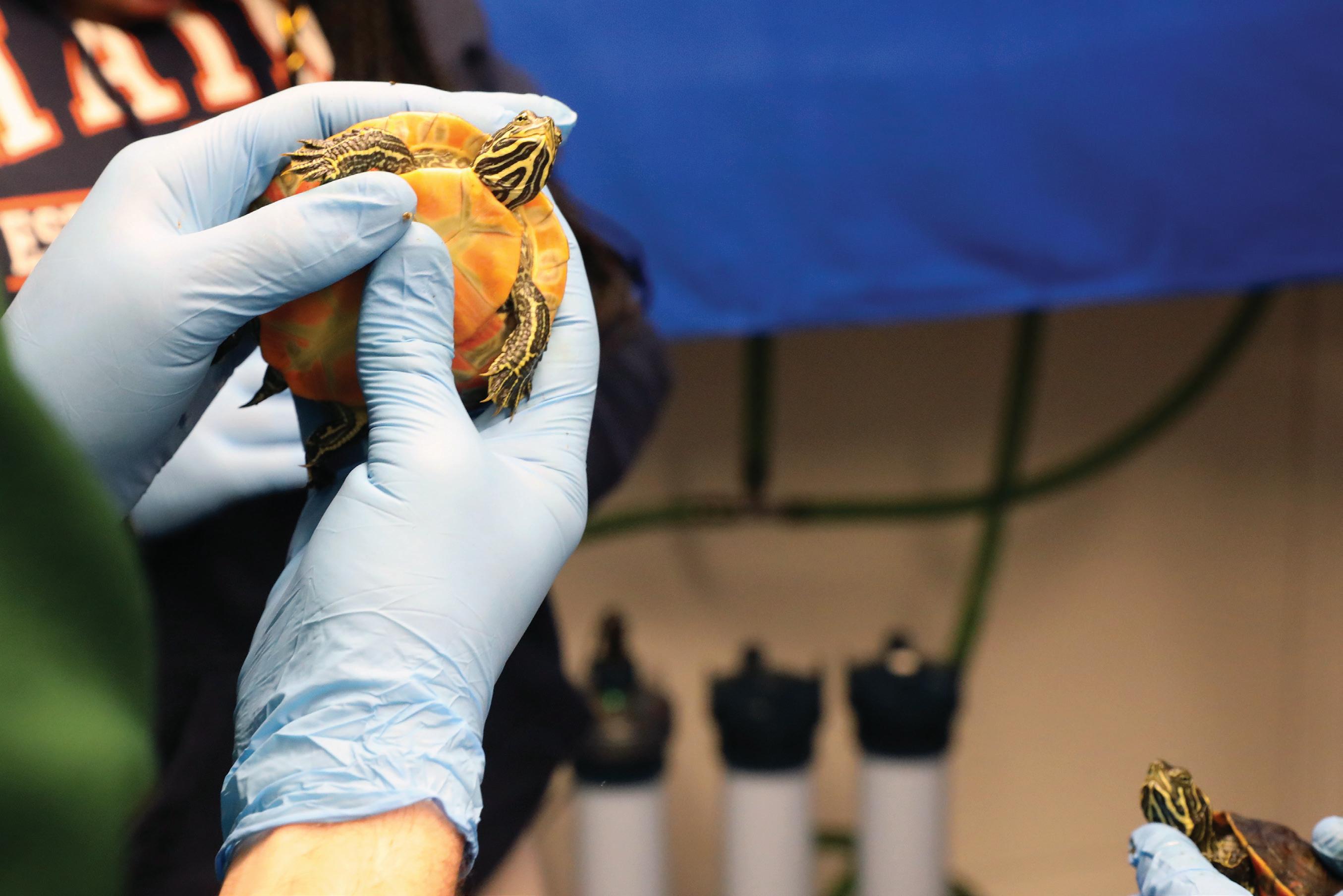
by Matt LaCoille, Associate Director of Development & Stewardship
Working Together to Save Turtles
When the PJM STEM Center opened in September 2019, the impact on our students and faculty was much greater than simply having a new building to use. The PJM STEM Center has created an open and collaborative environment that reaches across all classroom subject matters and fosters innovation from our students and faculty.
No example of this creativity is more evident than the amazing project that is ongoing in the Duncan Life Sciences Lab on the third floor of the PJM STEM Center.
Spearheaded by Mr. Andrew Ward, longtime science faculty member at Eagle Hill, the “turtle tank” project has spanned two decades, multiple faculty members, and dozens of students, all with the same goal-increase the survivorship of the northern
red-bellied cooter before it becomes extinct.
Having actively participated for the past fifteen years in the Natural Heritage and Endangered Species Program run by the Massachusetts Division of Fisheries and Wildlife, Ward and his students have created an innovative and efficient turtle tank to provide a safe and growth-focused environment for the turtles.
“These turtles are unique in a few ways, one being that they are only from one county in Massachusetts (Plymouth County), and that they are the second largest species of turtles in terms of physical size in Massachusetts. Unfortunately, these turtles have been affected by external forces that prevented many of them from surviving past their infancy,” said Ward.
Transcript of Dr. Cronin’s message to Eagle Hill’s faculty and staff during training week at the opening of the 2019–20 school year.
This summer I was writing about my life, so I will share some of my thoughts about my twenty-five years at Eagle Hill School (EHS) and what a privilege it was to teach here.
As many of you know, I taught here when Charles McDonald was headmaster. When my six kids were all teenagers, I left Eagle Hill to work at the University of Massachusetts Medical School. I retired from UMass after twenty-five years and then I returned to Eagle Hill.
The transformation of the school was amazing. Eagle Hill had grown physically, academically, and socially.
In addition, EHS has developed a deep culture, blending tradition and change. While pioneering in teaching students with learning differences, Eagle Hill has always been a school of caring, of family and community and even of daring to dream and take some risks. Who else would hire a sixty-eight-year-old and let her teach until she was eighty-two?
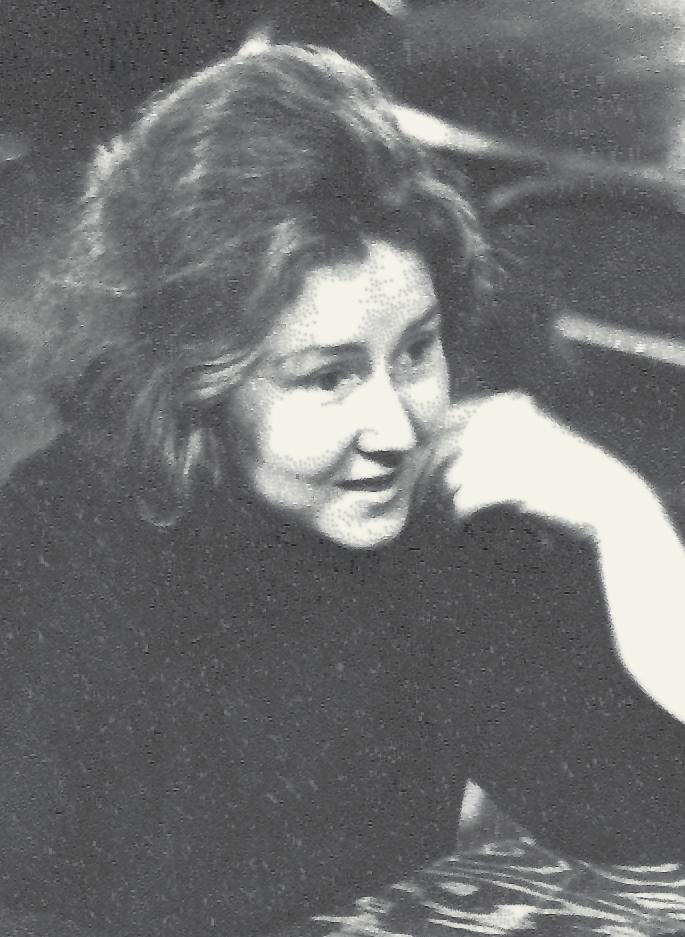
I wish I could copy PJ McDonald’s graduation poems and recognize each employee’s contributions here. I can give only a few examples: Maryann Jackson, who thanks us as she does us a favor; Deb Shanks, who has gratitude day every Thursday; Donna Linnehan, who gives her all to her advisees; Kathey St. John, who makes wonderful meals; Elaine Parmenter, who cleans our meal dishes; Velvet Chestnut, who teaches kids life skills in the dorms; Robin Majcher, who fills the daily medication packets; Gigi Donahue, who supervises the cleaning of the dorms and bathrooms; Lisa Gaskill, who keeps the computers and phones working; Donna Holden, who handles paperwork all day; Leslie Ann Murray, who shares her literary creativity; and Sandra Flower, who teaches Spanish with sewing projects.
I could go on, but the rest of you will have to fill in your own special contributions. However, it is your work contributions that make EHS this unique and successful place.
We know that our kids come with great needs, for our time, our energy, our attention. They are
By Dr. Matthew Kim, English Department Chair
Rhetoric in Society

SEPTEMBER 11–13, 2019, GHENT UNIVERSITY, BELGIUM
Every two or three years, the Rhetoric in Society conference commences in Ghent, Belgium, so that rhetoricians—or those people who study how symbols such as language move people toward certain beliefs and attitudes about the world—can ponder how social problems that plague our communities arise and are resolved through the language we use.
Each year since 2012, I have taken students in my Reading and Writing: Critical Analysis courses to present their original research in the form of a rhetorical analysis. Students writing a rhetorical analysis make an argument about how one uses language in a particular situation and the effects of that language on an audience. In 2012 and 2014, my students presented papers on Barack Obama’s and Wayne LaPierre’s responses to the Sandy Hook school shooting in Newtown, Connecticut.
This September fellow EHS English teacher Cody Bliss and I took three students—Connor Ryan ’20, Christopher Malley ’20, and Emily Baker ’21—to Ghent to share rhetorical analyses they wrote on the Committee on Health, Education, Labor, and Pension hearing on the nomination of Betsy Devos for the secretary of
education position on President-elect Trump’s cabinet. While Devos was confirmed by the U.S. Senate to be the secretary of education, it was a divisive hearing in which the vice president, Mike Pence, had to cast the tie-breaking vote in favor of Devos. During this confirmation hearing, Devos attempted to articulate her worldview on American education, including the privatization of education, the role the federal and state governments play and could potentially play in the lives of disabled students, the future of students who have been sexually assaulted at school, and student and faculty access to firearms in schools.
What was of interest to our students about Devos’s confirmation hearing was how Devos and several senators articulated their views on learning disabilities.
While Eagle Hill School approaches education with what we call learning diversity, or educating students from the understanding that difference is inevitable among humans, we remain acutely aware of how students with disabilities in American public schools are taught by teachers and administrators and treated by our nation’s laws. So that my students and I could better
ALUMNI/AE spotlight
A Passion for Cars Revs Up Rally 2 Give
MEET MATT ST. JEAN, CLASS OF 2016
Matt St. Jean ’16 is a junior at Sacred Heart University in Fairfield, Connecticut, an institution that has been the next step for many Eagle Hill graduates. There, in between taking classes and studying, Matt puts the idea of changing lives into practice. “Rally 2 Give is a charity organization that I run with my father (Rick St. Jean, former EHS parent) with the help of many volunteers. Our overall goal is to help and support organizations and people that need it, allowing us to make an impact in the lives of others.” Rally 2 Give is in its third year of operation with the organization centering itself on a passion for cars . . . lots and lots of cars. Through planned events, Matt and his father charge entry fees and collect donations from generous individuals who are looking to donate to a specific cause which Rally 2 Give promotes. From there, participants join the Rally 2 Give folks in a ride from one destination to another, with planned stops along the way. For example, St. Jean and his organization most recently completed a three-day charity rally route that stretched from Boston to Montreal to support Make-aWish Vermont. Check out the AMAZING recap video at bit.ly/Rally2Give-video. “A maximum of thirty registered
attendees and their chosen automobiles met at the start of the event at the Encore Boston Harbor Resort in Everett, Massachusetts, on Friday, October 4, at 10 a.m. and began in Boston, traveling through the mountains of New Hampshire, crossing the border into Canada, and [ending] in Montreal. Soon after crossing the finish line, participants celebrated with dinner at celebrity chef Marcus Samuelson’s new restaurant, MARCUS, in the Four Seasons Hotel Montreal” (per Rally 2 Give’s website). “This rally is the biggest one we’ve ever done, and I’m excited to continue to grow it year after year with even more rides and more opportunity to give back,” said St. Jean. St. Jean’s strong desire to expand the organization and help others can be partly “At the end of the day, we want to bring people together, have fun, and help change someone’s life.”
Matt St. Jean ’16 at a Rally 2 Give event.

contributed to his time at Eagle Hill, where his experience was full of impactful teachers that made a difference in his life.
“A lot of the things I do for the charity, as well as in school at Sacred Heart, come from some of the teachers I met at Eagle Hill. Faculty like Mr. Mike Richard, who taught me how to create graphics, and Mr. Josh Kanozek and Mr. Tyler Blais, all had a big impact on me. I knew I could accomplish anything in my life and Eagle Hill helped me realize that.”
To date, Rally 2 Give has raised over $175,000 for organizations all over the
Fall Family Weekend-October 24–27, 2019
TAKE A LOOK BACK

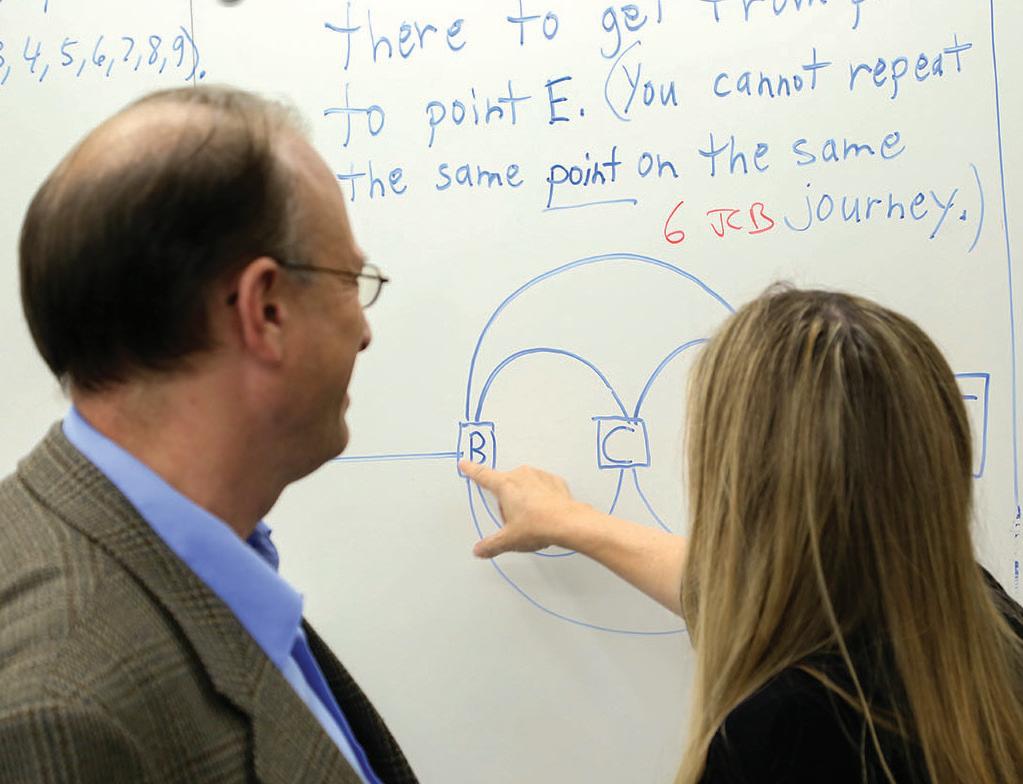
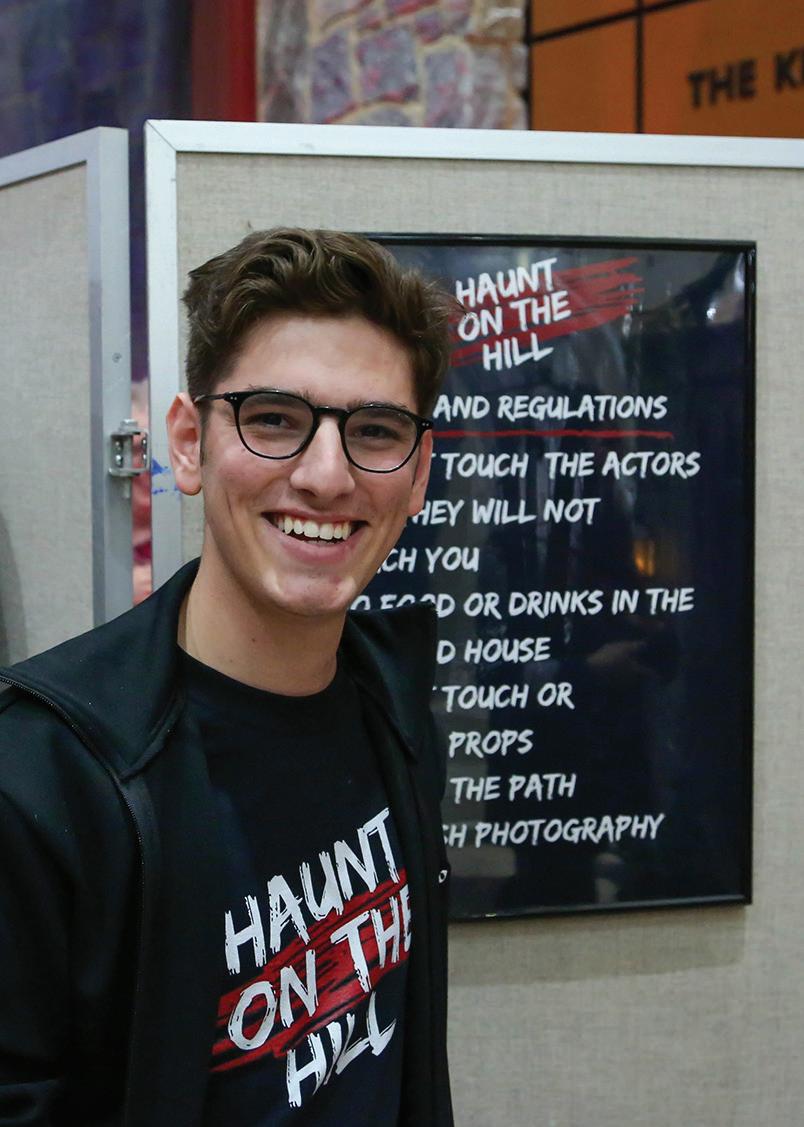
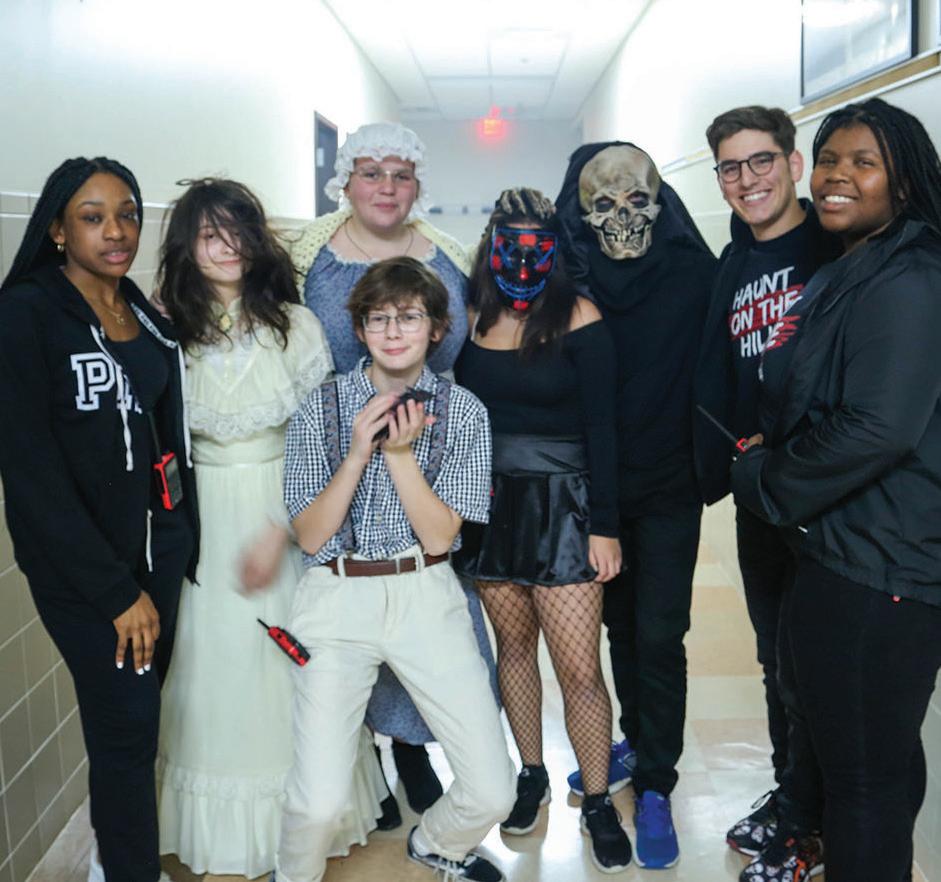
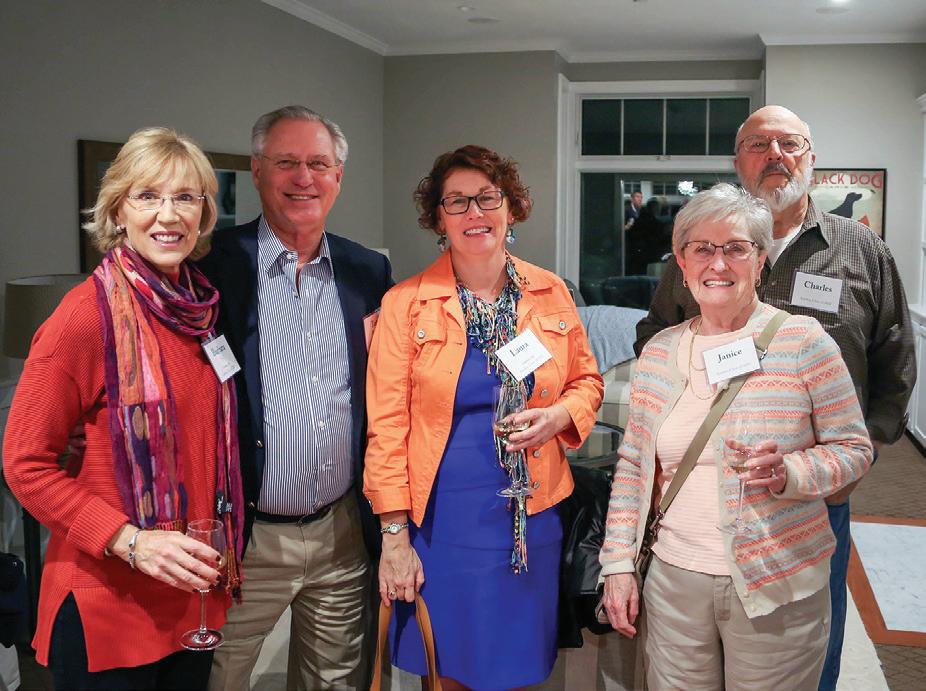
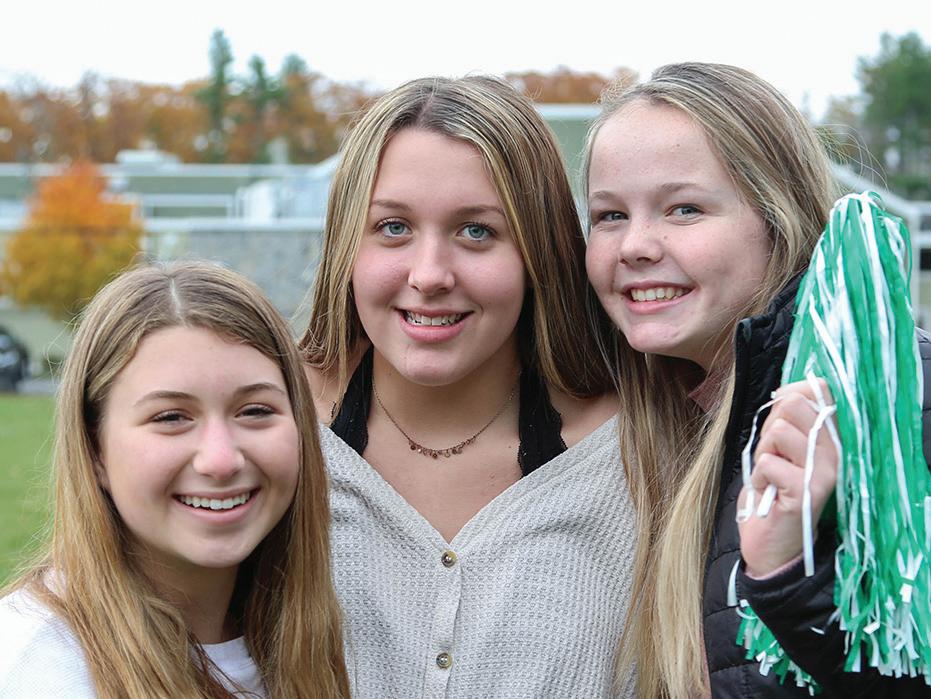
Family and friends gathered for a fun Family Weekend on October 24–27, to meet with faculty and staff, cheer on our Pioneer teams, explore the college fair, and tour a very spooky Haunt on the Hill. Join us for Spring Family Weekend on May 7–10, 2020!
